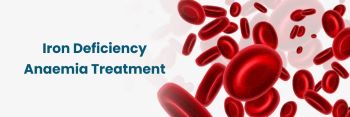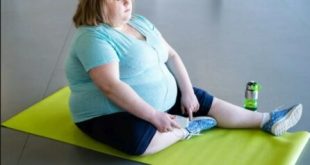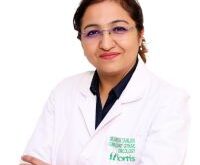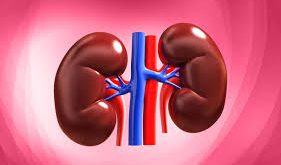 Iron deficiency anaemia is treated by increasing iron intake through diet and supplements. Foods rich in iron, such as red meat, leafy greens, and legumes, can help. Iron tablets may be prescribed, and underlying causes must be addressed.
Iron deficiency anaemia is treated by increasing iron intake through diet and supplements. Foods rich in iron, such as red meat, leafy greens, and legumes, can help. Iron tablets may be prescribed, and underlying causes must be addressed.
Iron deficiency anaemia is a common condition that occurs when your body does not have enough iron to produce adequate levels of haemoglobin, the substance in red blood cells that carries oxygen. It can make you feel fatigued, weak, short of breath and pale. However, iron deficiency anaemia can be treated effectively, and future recurrences can be prevented with the right approach.
If you think you are suffering from iron deficiency anaemia, seek the advice of your healthcare professional and take Livogen Tablet, a trusted solution for supporting iron levels and overall vitality. Understanding the causes and symptoms is important before beginning any treatment, as it ensures you address the condition thoroughly and prevent it from returning.
Increase Your Iron Intake Through Diet
The best way to treat iron deficiency anaemia is to add iron-rich foods to your diet. Some of the best dietary sources of iron include:
- Haem iron: Found in red meat, poultry and fish, this is more easily absorbed by the body than non-haem iron from plant sources.
- Leafy green vegetables: Spinach, kale, and broccoli are good plant-based options.
- Legumes: Beans, lentils, and chickpeas are rich in iron and easy to incorporate into meals.
- Iron-fortified foods: Many cereals, breads, and pastas are fortified with iron.
Additionally, consuming vitamin C-rich foods such as oranges, strawberries, and tomatoes alongside iron-rich foods can help boost iron absorption.
Iron Supplements
In cases where dietary changes alone are not sufficient, iron supplements are often recommended to restore iron levels quickly.
Here’s what you should know about iron supplementation:
- Consult a doctor: Always seek medical advice before starting iron supplements, as inappropriate dosing can cause side effects.
- Select the right supplement: Livogen Tablet is a trusted supplement that not only gives iron but also provides necessary vitamins for absorption.
- Consistency is key: Supplements need to be taken consistently, often for several months, to replenish iron stores and resolve anaemia.
- Timing matters: Taking iron tablets on an empty stomach can increase absorption but may cause stomach upset; taking them with food can help mitigate this.
If you’re looking for a reliable supplement to support your recovery from iron deficiency anaemia, Livogen Tablet can be a valuable addition to your treatment plan.
Treat Underlying Causes
Treating iron deficiency is important, but it is also important to identify and treat any underlying conditions that may be causing it. To help you understand why addressing underlying causes is essential, here are some common contributors:
- Heavy menstrual bleeding: Women with heavy periods are particularly at risk and may need gynaecological evaluation.
- Gastrointestinal bleeding: Conditions such as ulcers, haemorrhoids, or even gastrointestinal cancers can cause chronic blood loss.
- Poor absorption: Diseases like coeliac disease or inflammatory bowel disease (IBD) can impair iron absorption.
- Pregnancy: Pregnant women have higher iron requirements and may develop anaemia if not properly supplemented.
In each case, managing the root cause is vital for long-term recovery.
Intravenous Iron Therapy
For severe anaemia or cases where oral iron supplements are not tolerated or effective, intravenous (IV) iron therapy may be necessary. Before considering this option, it is important to know when IV iron might be appropriate.
- Severe iron deficiency with symptoms: Extreme fatigue, chest pain, or heart palpitations may warrant IV iron.
- Intolerance to oral iron: Some individuals experience significant gastrointestinal side effects from tablets.
- Need for rapid replenishment: Certain situations, such as late-stage pregnancy or pre-surgery preparation, may require faster correction of iron levels.
IV iron therapy is usually administered under medical supervision in a hospital or clinic setting.
Lifestyle Changes and Ongoing Monitoring
Making certain adjustments in your lifestyle can support your recovery and help prevent future occurrences of iron deficiency anaemia. It’s useful to consider a few important practices:
- Balanced diet: Maintain a diet rich in iron, vitamin C, and folate.
- Regular checkups: The levels of iron and haemoglobin should be monitored by periodic blood tests.
- Treat any chronic conditions: Control any long-standing health conditions that may lead to depleted iron levels.
- Avoid over-supplementation: Taking too much iron can lead to toxicity, so always follow medical guidance.
Creating healthy habits not only helps you recover faster but also promotes better long-term health.
In conclusion, treating iron deficiency anaemia requires a combination of dietary changes, supplements like Livogen Tablet, medical interventions where needed, and regular monitoring. With a proactive approach, you can overcome the symptoms and enjoy renewed energy and well-being.
 Newspatrolling.com News cum Content Syndication Portal Online
Newspatrolling.com News cum Content Syndication Portal Online






